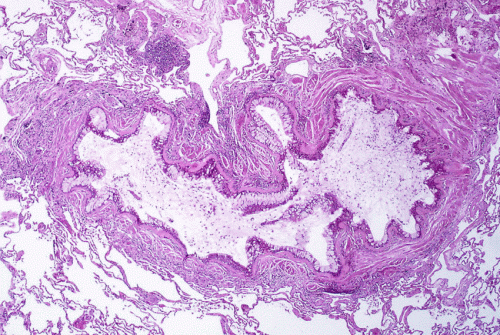A breath of fresh air for severe asthma research

Ten to 15 percent of people with asthma have severe asthma, a form of the disease that is not controlled by current medications. Many of these patients are prescribed increased dosages of corticosteroids, but continue to experience daily symptoms and recurrent infections, showing little improvement. The cause of severe asthma and why corticosteroids are ineffective for patients with severe asthma has been a mystery, until now. New research led by a team of investigators at Brigham and Women's Hospital points to immunological differences in responses to steroids in patients with severe asthma, suggesting why corticosteroids may paradoxically perpetuate inflammation in severe asthma. Their findings appear online this week in Science Immunology.
"This research is an attempt to better understand the immunology of patients with severe asthma and to answer the question of why they don't improve when taking corticosteroids," said Bruce Levy, MD, chief of the Division of Pulmonary and Critical Care Medicine at BWH. "Our findings point to an interesting and pivotal role for natural killer cells in the asthmatic airway and suggest that continuously giving high doses of corticosteroids may actually be making things worse."
Over the lifespan, asthma affects an average of one out of every eight Americans, but severe asthma is relatively rare. In order to amass the data to comprehensively characterize severe asthma and crack open the field, seven US asthma research centers joined forces to collect and share patient samples as part of the severe asthma research program-3 (SARP-3) Study funded by the National Heart, Lung and Blood Institute of the National Institutes of Health. Such samples included blood, sputum and exhaled breath samples as well as bronchoscopy samples from deep in the lungs. Levy notes that by examining specimens that originate in close proximity to the source from a relatively large number of well characterized patients with severe asthma, they were able to gain insights that had not been possible before.
"It was a unique opportunity to be a part of SARP-3 and home in on an in-depth characterization of the immunology of the severe asthma airway using bronchoscopy samples obtained from patients across the country," said lead author Melody Duvall, MD, PhD, a postdoctoral research fellow in the Levy lab and a physician in critical care medicine in the Division of Critical Care Medicine at Boston Children's Hospital.
Duvall, Levy and colleagues examined immune cells in samples from patients with severe asthma, patients with non-severe asthma and healthy control subjects. They focused on a prominent type of white blood cells: lymphocytes. One important family of innate lymphocytes in the lung are known as natural killer (NK) cells, which are pivotal for both mounting an immune response and helping to resolve inflammation. In patients with severe asthma, however, NK cells are disabled from resolving inflammation, and become outnumbered by other types of immune cells that provoke inflammation. Treatment with corticosteroids appeared to further suppress the ability of severe asthma NK cells to help clear inflammation.
"By the actions of corticosteroids on NK cells, patients with severe asthma who are on corticosteroids may be experiencing the side effects of the drug without receiving significant benefit," said Levy.
New classes of drugs that target allergic asthma are emerging or close to market, but Levy notes that these new drugs are unlikely to help patients with non-type 2 inflammation in severe asthma. Natural killer cells serve important roles in clearing non-type 2 inflammatory cells, so identification of a defect in NK cell function in severe asthma provides a window for the development of new therapeutic approaches. Of note, Levy and colleagues observed that natural molecules called lipoxins did preserve NK cells pro-resolving functions. Unlike steroids, lipoxins are a family of specialized pro-resolving mediator, a class of endogenous molecules that is being investigated to determine their capacity to resolve inflammation as well as their cellular and molecular mechanisms for resolution. This study has identified airway NK cells as a pro-resolving target for lipoxins; however, lipoxins are under-produced in severe asthma. Further studies of the relationship between severe asthma and pro-resolving mediators and their therapeutic potential are ongoing.
More information: "Natural killer cell–mediated inflammation resolution is disabled in severe asthma," 10 March 2017, Sci. Immunol. 2, eaam5446 (2017). DOI: 10.1126/sciimmunol.aam5446
















